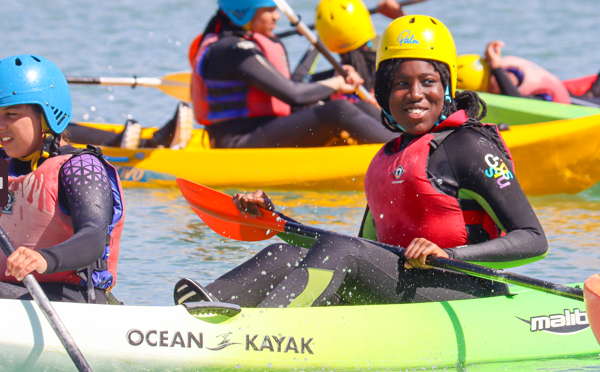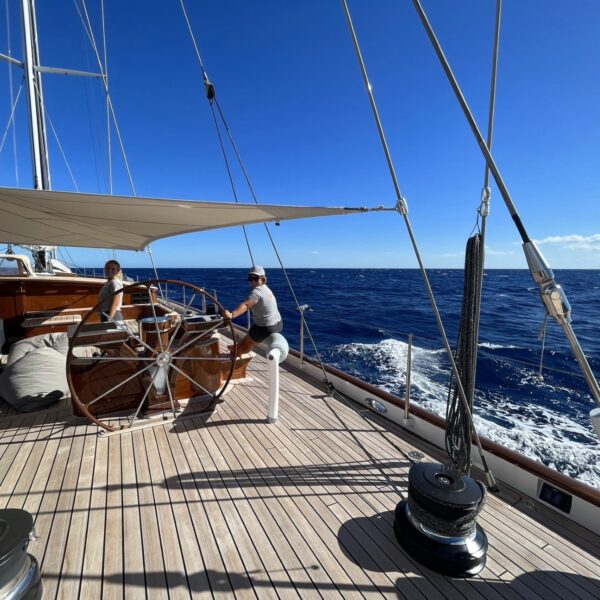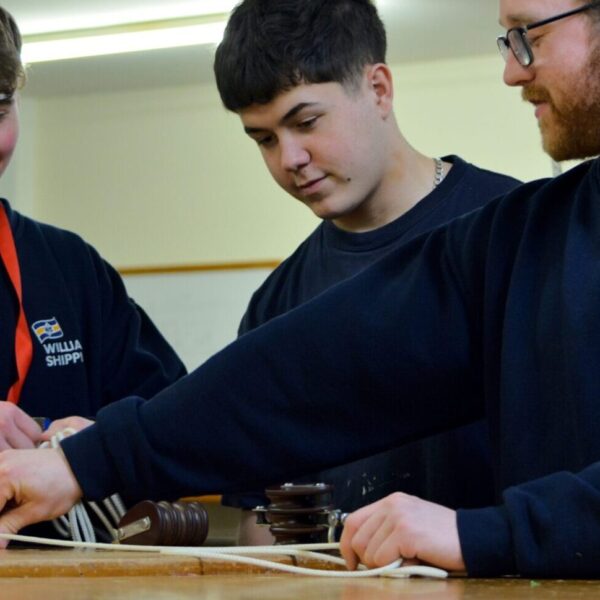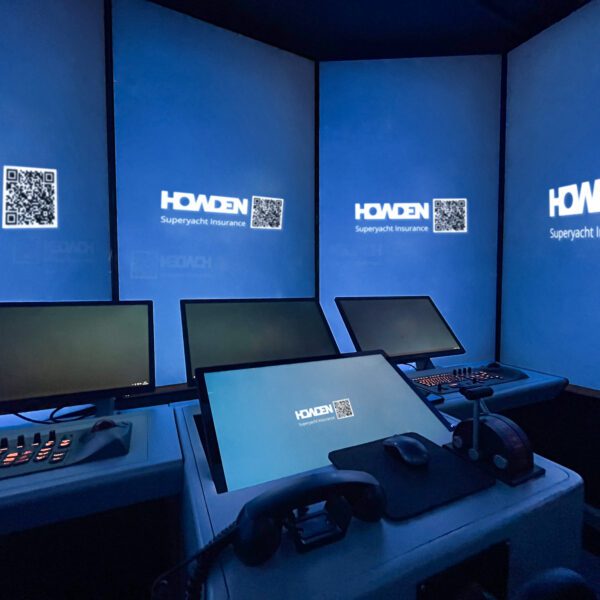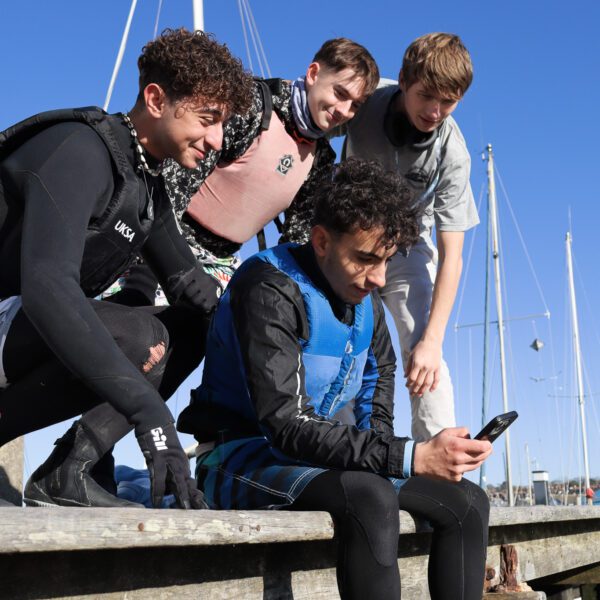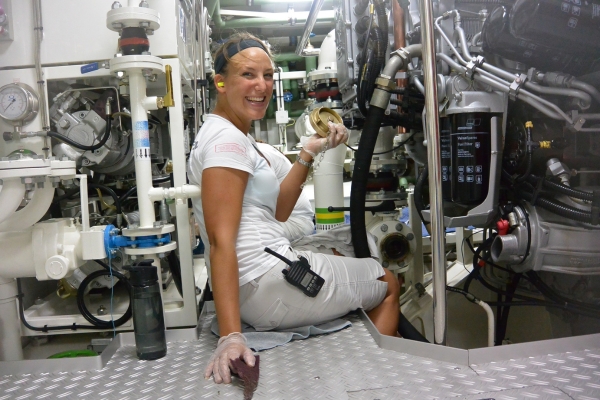Phase 3 Superyacht Cadet Charlotte shares her experiences as a female Deckhand
From Dockwalking to Deckhand
The UKSA Superyacht Cadetship is a four-year structured programme which provides a pathway into the competitive superyacht industry. Designed to train future officers, the Cadetship enables cadets to both study academically and make practical moves towards long-term industry careers – in Phase Two, cadets are employed and paid to work on 24m+ yachts as entry-level deckhands for 12-18 months before returning to academic study in Phase Three.

Charlotte Reynolds, a Phase Three cadet, began her first industry job last April as a Deckhand on a 30m boat. It took her about a month to gain employment, during which time she had frequent contact and encouragement from UKSA which took the sting out of suddenly being in the South of France, looking for work. Charlotte shares her story:

Finding your first job is always nerve racking – tell us about your dockwalking experience?
“To begin with I was fairly unsuccessful at dockwalking because of my confidence levels, but I kept trying and took a few CVs with me every time I went out. I found that visiting crew agents in Antibes was useful as I became more than just a picture on a piece of paper, and I decided to treat going to bars and social occasions as dockwalking because you make connections all the time.
What’s it like as female deckhand?
As a female Deckhand you get mistaken for a Stewardess all the time which I found especially trying, so I would advise others to make the distinction clear if they’re only interested in one aspect of employment.”

“My first role was as a Deck/Stew which meant that I had to learn the Deck side and also everything that service involves. It was a steep learning curve but it was a kickstart into the industry which my Captain called ‘trial by fire’. I had to be on the stern during manoeuvres, doing the line handling and communicating with the captain, as well as helping the Chief Stew with mealtimes that always coincided with manoeuvres. I also did watch duty managing the bridge, which I shared with the Captain and Engineer, and I cleaned the boat from top to bottom, inside and out.”

So you are now working on a larger yacht, how does this compare to smaller yachts?
“I’m now based in Cannes on a 47m as a Deckhand – we have a really busy programme ahead with charters and boss trips. I wanted to go up in size to see the difference and to see what type of boat I prefer to work on before I make a commitment as an officer. I’ve found that on smaller boats you gain a lot of responsibility very quickly whereas on larger ones the process is more gradual. The whole Superyacht Cadetship has gone really quickly and everything’s now becoming higher level so I’ve got my work cut out, but I’m looking forward to progressing further. I’m really proud of how I’ve developed and changed and I look forward to seeing where I’ll end up.”
Any top tips to those phase 1 cadets that have just graduated and are looking for work?
“I would advise new cadets to make the most of every moment of the Cadetship. Remember the reason you are there and why you wanted to get into the industry – this has helped to keep me focused. There will be moments when you doubt yourself and your decisions but it is motivating to picture yourself in the long run. As a female people will tell you repeatedly that in this industry it will be harder for you – you don’t have to listen to them. I believe that if you work hard enough you can achieve whatever you want. Just take any opportunity that comes at you and run with it.”
Your dream career could be a click away
Latest posts
